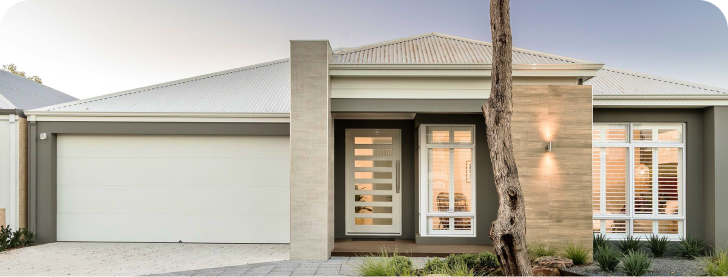
Accessory dwelling units have recently totally reshaped the market of affordable housing. Because of the rapid ADU development, more and more interested homeowners typically try to find money to construct a unit on the lot near the primary residence. It can come in handy on a variety of different occasions; that's why ADU building has become a craze among landlords.
One of the most popular ways to use a unit is to replenish the housing supply in the area. In our company, we have dealt with many homeowners with new single-family homes in the backyard, and they have shared their stories of starting a new business.
To learn more about the ADU rental success stories and lessons that homeowners have learned, continue reading this article.
Let's say this out loud: you can't start any business or obtain a new skill without trial and error. But why do so if there is the priceless experience of other ADU owners who have created successful ADUs that bring income?
To manage an ADU successfully, it is vital to pay attention to the following:
As you can see, managing an ADU successfully requires understanding some basic stuff. Keep our pieces of advice in mind and let your business flourish.
Amidst the housing shortage, finding renters is as easy as pie, but it is always better to retain long-term tenants for ADU's continued operation. But how to do so? One of our customers, the Simpsons family (surname is imaginary), has done so by carefully checking the possible residents and looking at certain criteria that, for them, served as markers of a long-term tenant.
As for another family, the Sanders family, they have developed easy-to-understand language in communication with the customers. This allowed them to keep residents comfortable while dealing with issues. The involved residents felt how the homeowners participated in their lives and supported them, which made them stay in the ADUs for longer periods of time.
While managing accessory dwelling units, clear communication is the principle you should keep in mind. As we have seen in the previous paragraph, it can be a key to attracting long-term renters. But in what way is it important?
Advisors in financial institutions underline that clear communication will let you speak openly about your plans concerning the rent increase, for example. If you voice out your concerns and reasons for the rate increase for tenants, it will be easier to understand why you do so.
By establishing good communication lines, you will be able to figure out and solve the concerns of the tenants. Hence, if you give more support to your dwellers, they are more likely to stay in your single-family home.
Despite regularly undergoing city inspections from the city council, emergencies can still happen, and it is vital to solve the issues right away. You can do so if you create an action plan for the dwellers in case of any emergencies. By working together and forging partnerships, you can create good conditions for them to live in your unit.
To pay off the start-up capital needed for building a unit, it is vital to maximize rental income. There are many ways you can do so, and we will share some stories of our real customers. First, the Peterson family managed to transform their single-family home built on minimum parcel size into multi-family housing by converting it into a duplex-style living space. They could rent out two units separately, which led to a dramatic increase in the money they got.
Second, the Pilgrim couple decided to stimulate interest in ADU construction and found financing options among tenants who paid money beforehand for several years and waited for the ADU completion.
In the following years, they wanted to build ADUs in the same way, and such a variant of developing ADUs helped them maximize profit.
To make your accessory dwelling unit an asset that can be rented out, it is vital to not only pass the permitting processes, follow the ADU ordinance, and pay attention to dense building codes, but you also have to navigate legal requirements.
Legal requirements for long-term ADU rentals include the following:
Other legal moments include paying fees, keeping a maximum unit size threshold, or following off-street parking requirements. Don't forget to follow the law to get the most out of your long-term ADU rental business.
Every unit has to be repaired with time, and to turn this maintenance process into a dream; we want to share some success stories. A great example would be the McCarthy family, who have a special ADU approach concerning maintenance. The key to it is regular, almost weekly inspections of every minuscule element of the unit.
Another great example is the Melville family, who got special education in the sphere of maintenance and now fix everything by themselves. This keeps the owner-occupant relationship warm and shows that they really care for their tenants, allowing ADUs to be an inviting place for a broader community of tenants.
In your first ADU building, it may be difficult to understand how vital the screening process is for long-term unit rentals. However, it affects many of your final decisions concerning tenants.
The screening makes your possible tenants pre-approved if you check their legal conflicts or payment issues. If you notice anything suspicious, why work with these people? Also, you will create inviting feedback about you as the owner who cares. Moreover, screening diminishes the possibility of damaging other properties by a tenant and decreases the public's involvement of other local residents in your business.
If you ask any of the homeowners with a renting business, they will tell you that positive relationships are the key to success with long-term tenants. The same goes for our customer F. Smith who created healthy connections with the tenants by inviting them to their main house to celebrate special events together.
For G. James, the installation of good relationships was not even in question. He could do so by the special scale of satisfaction and a table where the tenants left their concerns and offers about further unit development.
Not every landlord living in Los Angeles has the opportunity to check all single-family homes in Santa Cruz every day, so they require the features of remote management. However, as usual, there are certain pitfalls to avoid.
First, you need to use the application with a user-friendly online interface to make the management fast and useful. Next, it is vital to create trustworthy communication channels to avoid excessive worries about the state of a unit. Also, you need to work with reliable property inspectors who will do the checks for you.
By keeping these tips in mind, you will be able to maintain in good condition all units coming online.

With many novelties appearing every day, it is important to be in tune with the modern world. W. Black could do so by proposing to the Santa Cruz city council the idea of installation of solar panels on the roofs of his dwelling units. He was supported by other financial institutions and could invite many ecologically conscious tenants to live in his units.
Another story of success comes from K. West. He noticed that owner occupancy requirements in his area were high, so he rented some lots and created ADUs there to rent them out.
To own a granny flat, the city requires owner occupancy of the main lot where you will construct a unit. According to the ADU ordinance, you have to follow parking requirements and create a parking lot nearby. Also, the combined size of your unit and the main house cannot exceed a certain number.
There is no proposed policy concerning the usage of a unit from the city council. Many landlords use them to keep their immediate family and adult children nearby, while others compensate for the costs by renting it out; for some, the mixed-use development approved by the planning commission allows them to use a unit in several ways.
First, take a look at the parcel's location and how far it is from the city center, what influences the demand. Next, check the rental vacancy rate to see whether additional ADUs remain vacant or if they all accommodate tenants. Also, check how you can reduce fees in your city to make a profit out of renting.











